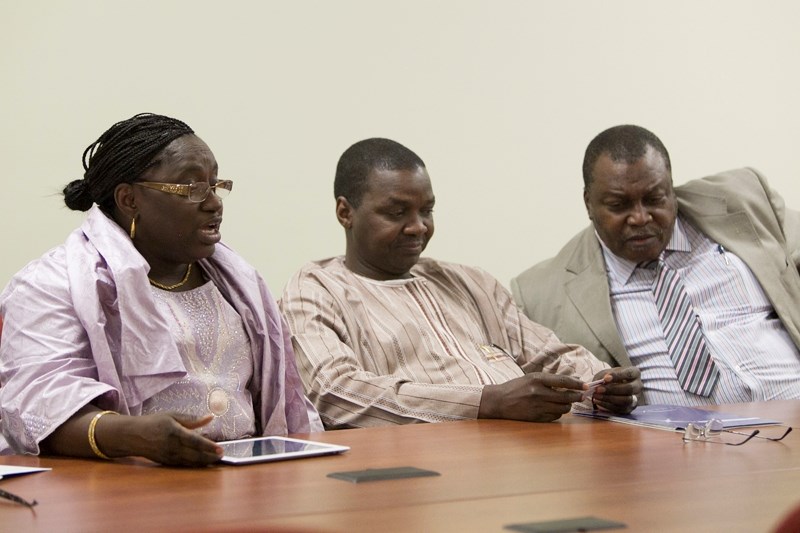A delegation from the Nigerian government met with Olds College officials on May 6 and 7 to help the West African nation set up a series of nine skills centres in the next two years.
The meeting was partly brokered by Remedex Remediation Services, a Calgary-based company that has worked with Olds College in the past and has interests in Nigeria.
The Nigerian government wants to set up the training centres in the oil and gas industry, agriculture, tourism and commerce. Three of the centres are slated for opening this summer and will concentrate on the oil and gas sector, with the others expected to open in 2014, said Darius Ishaku, Nigeria's minister of state for Niger Delta Affairs.
Located in the south of Nigeria, the Niger Delta is an oil-rich area that has seen a great deal of conflict since the early 1990s.
Ishaku said Nigeria has had a problem over the last several years with unemployment due to pollution of the land and ethnic militancy that has caused an interruption in developing the Niger Delta region's energy potential.
“(Non-development) has rendered many of (the youth) jobless, in terms that they can't farm the farmland because it's polluted. So the government came up with a policy that those youth have to be trained and developed,” he said, adding many people currently have only a primary or secondary school-level education.
Once the people are employed, Ishaku said the hope is that ethnic militancy plaguing the Niger Delta region will dissipate.
“We are here to partner with Olds College because we understand they are very good in (training). We want (Olds College) to help us in developing the curriculum and train these youth to be useful to themselves,” he said.
Since youth militancy has became a problem in the past two decades, oil production in the Niger Delta region dropped to 700,000 barrels of oil per day from 2.6 million barrels per day.
Ishaku said it's important to get oil production back up to as high a level as possible, not only to improve the economy, but to also decrease the level of militancy in the region. Oil revenue accounts for about 90 per cent of the country's gross domestic product.
Dr. Abimbola Abiola, chair of Olds College's School of Innovation, said the Nigerian government approached the college to work with it in developing curriculum to help the youth gain employment skills, as well as helping to teach the curriculum in several centres.
Discussion between Olds College and the Nigerian government began about a month ago.
While Olds College and the Nigerian government are still working out which centres the college would lend a hand at, Abiola said centres concentrating on agriculture and environmental reclamation of contaminated land would be a natural fit. The possibility also exists for Olds College to assist with trades education.
The government will be sending out requests for proposals shortly for organizations to operate the centres, and Abiola said the government has indicated it would like the college to operate one or more of them.
“They would really like us to help them in running one or two or three or four of those centres, depending on what we want to do,” he said.



